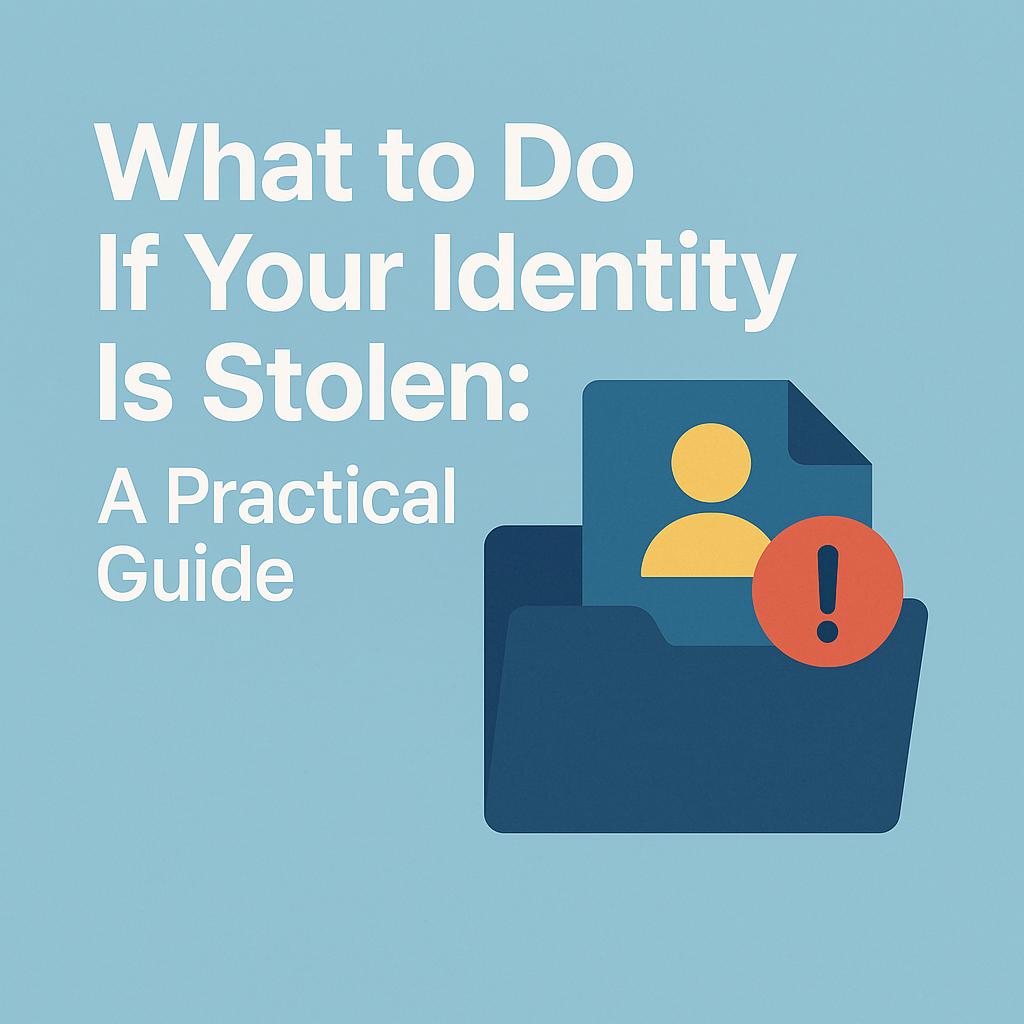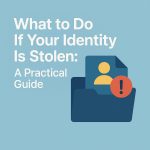Imagine waking up one morning to find that your bank account has been drained, a credit card you never applied for is maxed out, and debt collectors are calling about loans you never took. Identity theft is a nightmare, and unfortunately, it happens more often than we’d like to think. If you ever find yourself in this situation, knowing what to do—and acting fast—can make all the difference.
Stay Calm.
Panic won’t help, but a clear plan of action will. Start by reviewing your bank statements, credit reports, and any alerts you may have received about suspicious activity. The sooner you pinpoint the fraudulent activity, the better.
Place Fraud Alerts and Freeze Your Credit.
Contact one of the three major credit bureaus—Experian, Equifax, or TransUnion—and request a fraud alert on your credit report. This makes it harder for thieves to open new accounts in your name. Better yet, freeze your credit completely to prevent any new credit applications until the issue is resolved.
Report the Identity Theft.
- File a report with the Federal Trade Commission (FTC) at identitytheft.gov. The FTC will generate a recovery plan tailored to your situation.
- Contact local law enforcement and file a police report. While the police may not always be able to investigate identity theft cases, having a report on file can be helpful when dealing with creditors and financial institutions.
Contact Your Banks, Creditors, and Other Affected Accounts.
Notify your bank and credit card companies immediately. Close or freeze compromised accounts and ask for replacement cards. If fraudulent transactions have already gone through, dispute the charges as soon as possible.
Change Your Passwords and Secure Your Accounts.
Reset passwords on all your important accounts—especially email, banking, and social media. Use unique, strong passwords and enable two-factor authentication wherever possible to prevent further access.
Watch for Continued Fraudulent Activity.
Identity thieves don’t always stop at one attack. Keep a close eye on your credit reports and financial statements for months afterward. Set up alerts for any new credit inquiries or large transactions.
Get Identity Theft Protection (Before It’s Too Late!)
Unfortunately, identity theft protection isn’t retroactive—just like you can’t buy car insurance after an accident and expect coverage, you can’t subscribe to identity theft protection after your identity has been stolen and expect it to fix everything. However, having a service in place beforehand can help prevent fraud and drastically reduce the damage if you ever become a target.
That’s where Uncompromized™ comes in. Uncompromized™ actively helps you recover. Our FTC- and FCRA-certified team works with law enforcement, financial institutions, and credit bureaus to correct fraudulent records, helping you regain control of your identity as quickly as possible.
Final Thoughts
Recovering from identity theft can be a long and exhausting process, but taking the right steps quickly can make it more manageable. While there’s no way to guarantee you won’t be a target, having proactive protection in place—like Uncompromized™—can give you peace of mind, knowing that you have a team ready to step in if the worst happens.
Don’t wait until it’s too late. Protect your identity today.
Learn More about Identity Protection.






